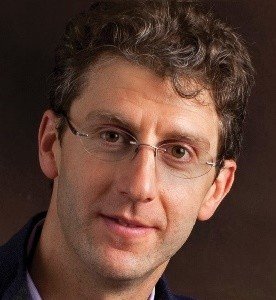Usually, a lump caused by breast cancer cannot be seen simply by looking at one’s breasts.
But it’s not impossible for a tiny hard red lump on the skin over one’s breast to be caused by breast cancer.
The possibility of this happening falls under the category of “potentially,” says Mark Levandovsky, MD, Founder and Medical Director of Preventive Medicine and Cancer Care. Dr. Levandovsky is a board certified internist and oncologist/hematologist in practice for over 25 years.
Dr. Levandovsky points out that “other conditions like inflammation of the glands, infections, benign skin conditions are much more likely to do this than breast cancer.”
A type of skin cancer called basal cell carcinoma can cause a hard little red lump “on” the breast.
The basal cell carcinoma tumor is actually on and in the skin and has nothing to do with the breast tissue.
Or, to put it another way, the issue is cutaneous, not mammary.
This type of tumor is very slow growing, and metastasis is very extremely rare.
When Breast Cancer Presents As a Small Red Bump
Dr. Levandovsky explains, “If breast cancer is close to skin surface or extensive (typically >5 cm), it can be associated with cellulitis or compromise lymphatic drainage, causing a red lump.
“Inflammatory BC causes skin redness specifically by infiltrating into lymphatic channels below skin surface, causing obstruction of lymph/blood flow and producing redness.”
If you’ve spotted what can be described as a hard, little red bump on the skin of your breast, gently tug at the nearby skin to see if the worrisome spot moves with the tugging.
If it does, it’s cutaneous (of or having to do with the skin). This movement with the pulling of your finger means the nodule is a dermatological issue.
If it doesn’t move with the tugging of your finger – if it stays in a fixed position beneath the skin, then it is a deeper issue, below the skin surface.
But this doesn’t mean it’s a malignant tumor.
If you notice any suspicious lump in the breast area, either visually or by feeling with your fingers, make an appointment with a doctor for an evaluation.

Dr. Levandovsky provides personalized care to health conscious individuals as well as cancer patients and survivors, focusing on an integration of genetic/molecular risk assessments, prevention, education, nutrition and psycho-oncology.
 Lorra Garrick has been covering medical, fitness and cybersecurity topics for many years, having written thousands of articles for print magazines and websites, including as a ghostwriter. She’s also a former ACE-certified personal trainer.
Lorra Garrick has been covering medical, fitness and cybersecurity topics for many years, having written thousands of articles for print magazines and websites, including as a ghostwriter. She’s also a former ACE-certified personal trainer.
.





































